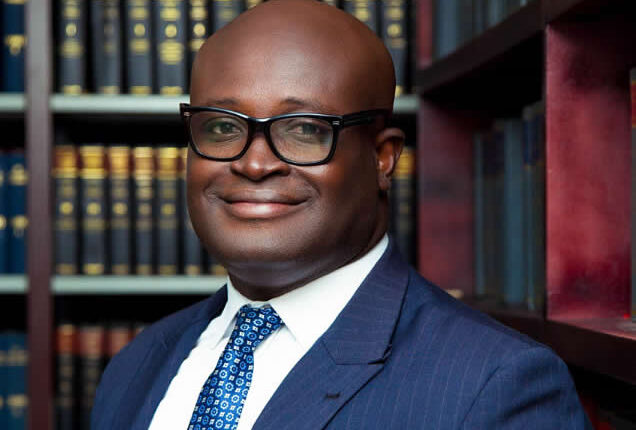In a cross-examination lasting 115minutes, prosecution witness, Vish Ashiagbor, stood his ground that suspicious transactions played a role in the ultimate collapse of Capital Bank.
Vish Ashiagbor, appointed the receiver of the collapsed bank, to administer the assets of the insolvent bank, was grilled by legal counsel for the first accused person Ato Essien, who founded the bank and has been charged for collapsing it.
In the grilling done by Gyawu Bonsu Ashia, the defence counsel sought to prove that some GH¢70million flagged by the receiver, Vish Ashiagbor, could not have been a suspicious transaction as he claimed.

The defence counsel led the prosecution witness through processes through which that money was paid into the account of the fourth accused person, Kate Quartey-Papafio.
That processes included a trail of documents, including a letter from Capital Bank to the Director of Urban Roads, confirming the authenticity of a contract for which monies were to be released.
But after leading the witness through the process, Vish Ashiagbor, a Chartered Accountant and director at PwC, insisted the payment was suspicious.
He explained that the basis for which the receiver has flagged the payment of GH¢70million had ‘nothing to do with the contents’ of the letter which the defence counsel was relying on to prove the authenticity of the transaction.
The defence counsel now moved to find the whereabouts of that money. This client, Ato Essien and the 4th accused person, Kate Quartey-Papafio have been charged with conspiracy to steal and stealing this GH¢70million.
 Photo: Kate Quartey-Papafio is CEO of Reroy Cables
Photo: Kate Quartey-Papafio is CEO of Reroy Cables
The witness confirmed that the money was paid into the account of Kate Quartey-Papafio, who was an executive of the bank.
Vish Ashiagbor then explained this money was moved back to Capital Bank before the receivers took over the bank in August 2017, as directed by the Bank of Ghana.
The prosecution witness confirmed that the receiver refused to release the money to the 4th accused person, Kate Quartey-Papafio after she requested for it.
To which the defence counsel asked ‘so as you speak, you have control over the money?’
Vish Ashiagbor said no and explained that “…in simple terms, my Lord, the money as you narrated, the money came from Capital bank, it was transferred to CAL Bank, and from there, it was transferred back to Capital Bank. So it was in a circular transaction.”
“So where is the money?”, the defence pressed the prosecution witness to confirm that indeed the money was not with his client and the 4th accused person.
The prosecution witness Vish Ashiagbor responded;
“So the money came back to Capital Bank, and once Capital Bank went into receivership, as part of the arrangements that the Joint Receivers made at the time with GCB Bank, to assume part of the business of Capital Bank, any cash that was available was assumed by GCB Bank.”

The prosecution witness is helping the state make the case that the founder of the defunct bank Ato Essien and Kate Quartey-Papafio ‘agreed to act with a common purpose to steal GH¢70million’ between June and August 2017.
It is also the state’s case that the two tried to ‘dishonestly appropriate’ the GH¢70million belonging to Capital Bank through money laundering.
The accused persons have denied all the charges.
That money was part of millions which the Bank of Ghana gave to the then-struggling Capital Bank to keep it afloat. The money was to be paid back.
But the state alleges the two accused and two others acted in ways that dissipated the liquidity support leading to the Bank of Ghana withdrawing the operating licence of Capital Bank in August 2017.
The central bank allowed the state-owned bank, the GCB Bank, to acquire Capital Bank to protect depositors’ funds.
















